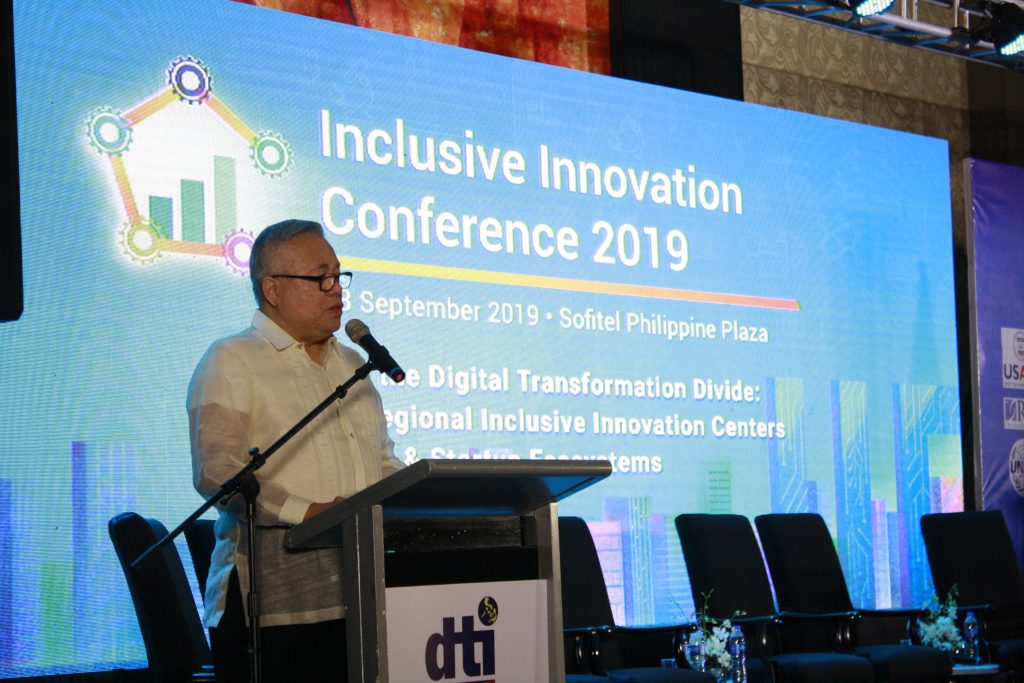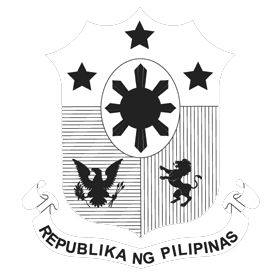
Inclusive Innovation Conference 2019 (IIC 2019) successfully held
MAKATI CITY – The Department of Trade and Industry (DTI) successfully held the Inclusive Innovation Conference (IIC 2019) last Monday, 23 September 2019, at the Sofitel Philippine Plaza Manila.
Now on its third year, the IIC 2019 gathered stakeholders from the government, academe, industry and civil society to promote innovation and entrepreneurship and share initiatives on the Fourth Industrial Revolution, learning from the experiences of other countries, while taking note of best practices and key takeaways from different stakeholders in the country.
With this year’s theme being, “Bridging the Digital Transformation Divide: Fostering Regional Inclusive Innovation Centers and Startup Ecosystem,” IIC 2019 placed the spotlight on the establishment of the Regional Inclusive Innovation Centers (RIICs) in the regions, as well as the impact of the Fourth Industrial Revolution (4IR) technologies on business models and productivity, and the challenges being faced by the Philippine Startup Ecosystem.
The IIC 2019 saw three very insightful and engaging sessions, each highlighted by inspiring talks from the Secretaries of the Department of Trade and Industry (DTI), the National Economic and Development Authority (NEDA), and the Department of Science and Technology (DOST).
DTI Secretary Ramon M. Lopez delivered the keynote address and shared the overall motivation in conducting the event by saying: “As the world enters the Fourth Industrial Revolution, Philippines must prepare to ensure that it remains competitive”. He further stressed the importance of innovation as he mentioned that, “Innovation is the best way for the Philippines to prepare for future production”.
The first session delved into the establishment of pilot Regional Inclusive Innovation Centers (RIICs) where various recommendations in sustaining the RIICs innovation efforts through inclusivity, continuous engagement and collaborative partnerships with experts, research organizations, and other stakeholders were discussed.
Emphasizing the need to embrace Industry 4.0 technologies, the second session’s speakers and panel discussants, from here and abroad, shared their views and experiences and discussed prospects for disruptive technologies in the country. Secretary Ernesto Pernia of NEDA, in his keynote address, highlighted the positive development of the recent passage of the Philippine Innovation Act (RA 11293) and the Innovative Startup Act (RA11337). He noted that both legislations are enabling policies to the innovation ecosystem through addressing the current gaps in the Science, Technology, and Innovation (STI) sector governance framework, as well as, creating opportunities for entrepreneurs with innovative ideas to gain access to capacity building, exchange programs and link them to potential investors, collaborators and markets, both local and overseas.
The participants were also treated with a presentation from Mr. Klein of Siemens ASEAN who said that the Southeast Asia, including the Philippines, is seen as an emerging region in the world with a great potential to adopt Industry 4.0 technologies. Mr. Oliver Authried of UNIDO echoed the same sentiment and shared that the Philippines is, indeed, on track in its effort to take advantage of the opportunities presented by 4IR.
Learning from the journey of successful startups, the third session featured Philippine startups and incubators, revealing their strategies in building successful startups and getting support from venture capitalists. Secretary Fortunato Dela Pena of the DOST opened the session and shared the various startups that were helped through various DOST programs. In concluding his talk, he suggested to further intensify the role played by Technology Business Incubators (TBIs) in startup development, by saying that: “We need to jump from local to the international playing fields for our TBIs to provide international access to our startups.”
The insightful and engaging event highlighted the government, industry, and academe efforts to move the country’s innovation ecosystem forward, thereby bridging the digital transformation divide for the benefit of each and every Filipino across all sectors.

Republic of the Philippines
All content is in the public domain unless otherwise stated.
About GOVPH
Learn more about the Philippine government, its structure, how government works, and the people behind it.




